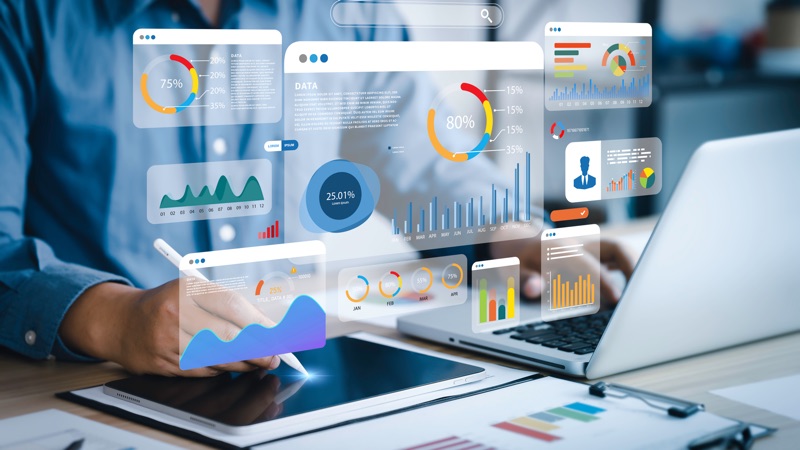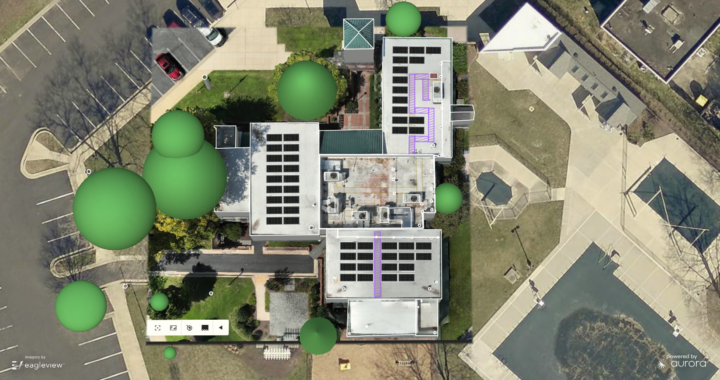Over the past 15 years, data has emerged as a game-changer, revolutionizing industries and transforming the way we live and work. The unprecedented growth of digital technologies, connectivity, and data collection capabilities has opened up new avenues for innovation and progress. In this blog post, we will explore how data has changed the world as we know it and specifically examine its profound impact on efforts to reduce greenhouse gases and improve operations for manufacturers in the USA. Harnessing the power of data has become instrumental in driving sustainability and shaping a more environmentally conscious future.
The Data Revolution
The past decade and a half have witnessed an exponential growth in data generation, storage, and analysis. This surge in available data, coupled with advancements in computing power and machine learning, has enabled us to gain unprecedented insights and make data-driven decisions across various domains. Industries such as healthcare, finance, transportation, and manufacturing have all experienced significant transformations due to the utilization of data.
Impact on Reducing Greenhouse Gases
The fight against climate change requires robust strategies and innovative solutions. Data plays a crucial role in this endeavor, offering insights and opportunities for reducing greenhouse gas emissions. Here are a few ways data is making an impact:
Energy Consumption Analysis: Data analytics allows businesses and individuals to monitor and analyze their energy consumption patterns. By identifying energy-intensive processes and areas of inefficiency, companies can make informed decisions to optimize energy usage, reduce emissions, and lower their carbon footprint.
Smart Grids and Energy Management Systems: The integration of data-driven technologies in energy grids enables real-time monitoring, demand-response capabilities, and efficient energy distribution. By intelligently managing energy resources, such as renewable energy sources and energy storage systems, smart grids can contribute to a more sustainable and resilient energy infrastructure.
Predictive Analytics for Resource Optimization: Data analytics and machine learning algorithms can predict energy demand patterns, helping manufacturers optimize their operations. By forecasting energy requirements, companies can schedule production processes, adjust load balancing, and minimize energy waste, ultimately leading to reduced greenhouse gas emissions.
Supply Chain Transparency: Data-driven platforms and technologies enable enhanced supply chain visibility and transparency. Manufacturers can track and trace their products throughout the supply chain, identifying areas of inefficiency, reducing waste, and ensuring sustainable sourcing practices, which contribute to lowering emissions.
Improving Operations for Manufacturers in the USA
Data has also brought significant improvements to manufacturing operations, driving efficiency, cost savings, and sustainability. Here’s how data is transforming manufacturing in the USA:
IoT and Industrial Automation: The Internet of Things (IoT) has enabled the integration of sensors, connected devices, and machinery, creating smart factories. Real-time data collection and analysis help manufacturers optimize processes, detect anomalies, minimize downtime, and reduce energy consumption, thereby improving overall operational efficiency and sustainability.
Predictive Maintenance: By leveraging data from sensors and machine monitoring systems, manufacturers can predict equipment failures and perform proactive maintenance. This approach reduces unplanned downtime, extends the lifespan of machinery, minimizes energy waste, and ensures optimal operational efficiency.
Waste Reduction and Material Efficiency: Data analytics provides insights into production processes, allowing manufacturers to identify waste generation points and optimize material usage. By implementing data-driven strategies, such as lean manufacturing principles and real-time monitoring, companies can reduce waste, conserve resources, and promote sustainability.
Life Cycle Assessment: Data-driven life cycle assessments enable manufacturers to evaluate the environmental impact of their products from raw material extraction to disposal. This holistic approach helps identify areas for improvement, eco-design products, and make informed decisions to minimize emissions throughout the product’s life cycle.
Conclusion
Data has transformed the world we live in, offering immense opportunities to drive sustainability and tackle pressing challenges like reducing greenhouse gas emissions. By harnessing the power of data analytics, machine learning, and IoT, businesses can optimize energy consumption, improve operational efficiency, and foster sustainable practices. For manufacturers in the USA, data-driven insights enable smarter decision-making, waste reduction, and the promotion of eco-friendly operations. As we continue to embrace the data revolution, let us recognize its potential to shape a greener, more sustainable future for generations to come.









